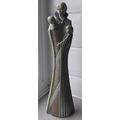Louth, Lincolnshire - St James Church - Skilton art postcard
- Condition : Used
- Dispatch : 2 Days
- Brand : None
- ID# : 125000832
- Quantity : 1 item
- Views : 679
- Location : United Kingdom

- Seller : justthebook (+1675)
- Barcode : None
- Start : Fri 28 Feb 2014 05:23:41 (EDT)
- Close : Run Until Sold
- Remain : Run Until Sold
Checks/Cheques
 for 1 item(s) edit
for 1 item(s) edit
Shipping Calculator
More Listings from This Seller view all
Seller's Description
- Postcard
- Picture / Image: St. James Church, Louth, Lincolnshire
- Publisher: Charles Skilton & Fry Ltd.
- Postally used: no
- Stamp: n/a
- Postmark(s): n/a
- Sent to: n/a
- Notes / condition:
Please ask if you need any other information and I will do the best I can to answer.
Image may be low res for illustrative purposes - if you need a higher definition image then please contact me and I may be able to send one.
------------------------------------------------
Postage & Packing:
UK (incl. IOM, CI & BFPO): 99p
Europe: £1.60
Rest of world (inc. USA etc): £2.75
No additional charges for more than one postcard. You can buy as many postcards from me as you like and you will just pay the fee above once. (If buying postcards with other things such as books, please contact or wait for invoice before paying).
Payment Methods:
UK - PayPal, Cheque (from UK bank) or postal order
Outside UK: PayPal ONLY (unless otherwise stated) please. NO non-UK currency checks or money orders (sorry).
NOTE: All postcards are sent in brand new stiffened envelopes which I have bought for the task. These are specially made to protect postcards and you may be able to re-use them. In addition there are other costs to sending so the above charge is not just for the stamp!
I will give a full refund if you are not fully satisfied with the postcard.
----------------------------------------------
Text from the free encyclopedia WIKIPEDIA may appear below to give a little background information (internal links may not work) :
*************
Louth ![]() i/'la??/ is a market town and civil parish within the East Lindsey district of Lincolnshire, England.
i/'la??/ is a market town and civil parish within the East Lindsey district of Lincolnshire, England.
Known as the ""capital of the Lincolnshire Wolds"", it is situated where the ancient trackway Barton Street crosses the River Lud, and has a total resident population of 15,930.[1]
The Greenwich Meridian crosses Eastgate and this point is marked with a plaque on the north side of the street, just east of the junction with Northgate. The three-mile (5 km) £6.6 million A16 Louth Bypass opened in August 1991. The former route is the B1520.
Three handaxes have been found on the wolds surrounding Louth, dating from between 424,000 to 191,000 years ago, indicating inhabitation in Paleolithic era.[2] Bronze Age archeological finds include a 'barbed and tanged' arrowhead found in the grounds of Monks' Dyke Tennyson College.[3]
St Helen's Spring, at the Gatherums, off Aswell Street, is dedicated to a popular medieval saint, the mother of Constantine the Great, the first Roman Emperor to become a Christian,[4] but is thought to be a Christianised Romano-British site for veneration of the pagan water-goddess Alauna.[5]
The Anglo-Saxon pagan burial ground, northwest of Louth, dates from the fifth to sixth centuries, and was first excavated in 1946.[6] With an estimated 1200 urn burials it is one of the largest Anglo-Saxon cremation cemeteries in England.[2]
Æthelhard, a Bishop of Winchester who was made Archbishop of Canterbury in 793, was an abbot of Louth in his early life.[7]
In 1086, Louth was mentioned in the Domesday book as a town of 124 households.[8]
Louth Park Abbey was founded in 1139 by the Bishop Alexander of Lincoln as a daughter-house of the Cistercian Fountains Abbey in Yorkshire.[9] Following its dissolution in 1536 it fell into ruin and, today, only earthworks survive, on private land, between Louth and Keddington.[10][11] Monks' Dyke, now a ditch, was originally dug to supply the abbey with water from the springs of Ashwell and St. Helen's at Louth.[12]
In 1643, Sir Charles Bolles, a resident of Louth, raised a 'hastily-got-up soldiery' for the Royalist cause in the English Civil War. Fighting took place in, and around the town and, at one point, Bolles was forced to take refuge under the Ramsgate bridge.[13] By the battle's end 'Three strangers, being souldgeres, was slain at a skirmish at Lowth, and was buryed'.[13] Human remains, found during archaeological visits to Louth Park Abbey during the 1800s, in 'a little space surrounded by a ditch', were believed to date from the Civil War as two cannonballs, from that era, were found with the bodies.[14]
type=printed postcards
theme=topographical: british
sub-theme=england
county/ country=lincolnshire
number of items=single
period=1945 - present
postage condition=unposted
Listing Information
| Listing Type | Gallery Listing |
| Listing ID# | 125000832 |
| Start Time | Fri 28 Feb 2014 05:23:41 (EDT) |
| Close Time | Run Until Sold |
| Starting Bid | Fixed Price (no bidding) |
| Item Condition | Used |
| Bids | 0 |
| Views | 679 |
| Dispatch Time | 2 Days |
| Quantity | 1 |
| Location | United Kingdom |
| Auto Extend | No |














